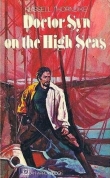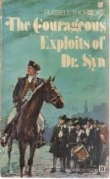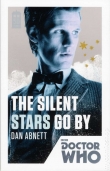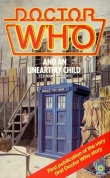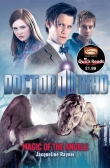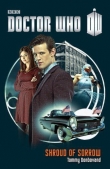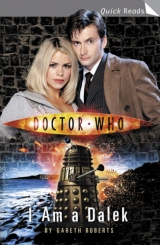
Текст книги "Doctor Who - I Am a Dalek"
Автор книги: Gareth Roberts
Жанры:
Классическое фэнтези
,сообщить о нарушении
Текущая страница: 1 (всего у книги 5 страниц)

Equipped with space suits, golf clubs and a flag, the Doctor and Rose are planning to live it up on the Moon, Apollo-mission style. But the TARDIS has other plans, landing them instead in a village on the south coast of England; a picture-postcard sort of place where nothing much happens. . . until now.
Archaeologists have dug up a Roman mosaic, dating from the year 70
AD. It shows scenes from ancient myths, bunches of grapes – and a Dalek. A few days later a young woman, rushing to get to work, is knocked over and killed by a bus. Then she comes back to life.
It’s not long before all hell breaks loose, and the Doctor and Rose must use all their courage and cunning against an alien enemy – and a not-quite-alien accomplice – who are intent on destroying humanity.
Featuring the Doctor and Rose as played by David Tennant and Billie Piper in the hit series from BBC Television.

I Am a Dalek
Gareth Roberts
Published by BBC Books, BBC Worldwide Ltd,
Woodlands, 80 Wood Lane, London W12 0TT
First published 2006
Copyright © Gareth Roberts 2006
The moral right of the author has been asserted.
Doctor Who logo © BBC 2004
Original series broadcast on BBC television
Format © BBC 1963
‘Doctor Who’, ‘TARDIS’, ‘Dalek’ and the Doctor Who logo are trademarks of the British Broadcasting Corporation and are used under licence.
‘Dalek’ image copyright © BBC/Terry Nation 1963
All rights reserved. No part of this book may be reproduced in any form or by any means without prior written permission from the publisher, except by a reviewer, who may quote brief passages in a review.
ISBN 0 563 48648 1
Commissioning Editor: Stuart Cooper
Consultant Editor: Helen Raynor
Editor: Justin Richards
Doctor Who is a BBC Wales production for BBC ONE Executive Producers: Russell T Davies and Julie Gardner Producer: Phil Collinson
This book is a work of fiction. Names, characters, places and incidents are either a product of the author’s imagination or used fictitiously. Any resemblance to actual people living or dead, events or locales is entirely coincidental.
Cover design by Henry Steadman © BBC 2006
Typeset in Stone Serif by SX Composing DTP, Rayleigh, Essex Printed and bound in Great Britain by Bookmarque, Surrey For more information about this and other BBC books, please visit our website at www.bbcshop.com
Contents
Chapter One
1
Chapter Two
5
Chapter Three
11
Chapter Four
17
Chapter Five
23
Chapter Six
29
Chapter Seven
33
Chapter Eight
39
Chapter Nine
45
Chapter Ten
49
Chapter Eleven
53
Chapter Twelve
57
Chapter Thirteen
63
Chapter Fourteen
65
Acknowledgements
67
World Book Day: Quick Reads
69
CHAPTER ONE
ROSE CHECKED THE SEAL on her space helmet, then she looked across the TARDIS controls to the Doctor.
‘Turning off the air,’ he said, his white-gloved hand flicking one of the many switches on the panel. His voice reached Rose through a two-way radio link built into their helmets. ‘Turning off the gravity.’
He flicked another switch and smiled over at her. Then he remembered something. ‘Oh – and balance pressure,’ he added, flipping another control. ‘Because we don’t wanna burst. Going up, Mary Poppins.’
Rose felt the weight leave her body and reached out to steady herself on the edge of her side of the panel. ‘Can’t believe it,’ she said.
She cast a glance to the police box doors, imagining what lay outside.
‘Walking on the moon.’
‘More like leaping,’ said the Doctor happily. To demonstrate, he put one foot forward and let himself be carried through the vacuum, landing with the grace of a ballet dancer a good fifteen feet away. ‘Practise, then,’ he told Rose. ‘You don’t want to fall flat on your backside out there. Leap!’
Rose let go of the panel and followed his example, remembering to push gently, and landing only a little less expertly right next to him.
‘Giant leap. And leap!’ the Doctor encouraged her, and they set off, floating and bumping around the TARDIS together.
Rose grabbed one of the wall struts, kicked off and made a perfect cartwheel, watching the large room circle around her.
The Doctor beamed at her. ‘Got it? Good.’ He reached for a long white pole and a battered old bag that he’d tied to one of the floor plates before turning off the gravity. From the bag he produced a long line of string with flags of all the nations strung along it. ‘The bit we’ve landed on won’t be explored for a few thousand years, so let’s give ’em 1
a shock when they get there.’ He looked along the line, considering, and halted at a green and blue flag with a thick black and yellow stripe along the middle. ‘Tanzania?’ he said mischievously. Then his eyes lit on the next flag along, which featured a crest and the initials WI. ‘No, gotta be this! Women’s Institute.’ His face fell just for a second. ‘We can’t.’ Then he smiled again and attached the flag to the pole. ‘We can! And did those feet, in ancient times, walk upon the moon’s mountains green? That’ll keep a few historians in jobs in the forty-ninth century.’
The abandoned string of flags hung in the air before Rose’s face.
Suddenly the importance of what was about to happen struck her.
‘Wait a sec,’ she told the Doctor, halting him with a hand to his shoulder as he made to leap for the doors. ‘I’m gonna be the first woman on the moon. I know I’ve been a lot further, but that’s amazing. The moon, you never think about it, it’s just. . . up there. And now I’m on it.’ She studied his face. ‘I bet you think it’s like going to Calais or something.’
The Doctor turned to face her. His features were alive with wonder and excitement. Not for the first time, Rose felt it was as if he was seeing through her eyes, and she wondered if that was one of the reasons he needed somebody to travel with. ‘Rose, the moon is incredible. Everything down on Earth relies on it. Rats jump for it. Tides rush out from it. Humans kiss under it. Without it there’d be nothing down there worth the light. And that just happened by chance – trillions of odds against it – one bit of stardust meets another bit of stardust.’
Rose jumped over to the doors and reached out for the handle, then stopped. ‘I should think up something to say.’
‘Just get out there,’ said the Doctor, swinging a bag full of golf clubs on to his shoulder. ‘Leap!’
Rose shut her eyes, pulled the door open and leapt.
She came down with a loud thud, smashing into a wooden table. It had been an ordinary leap, not weightless at all.
Picking herself up – the suit’s padding had protected her from the worst of the fall – she looked around. There were more tables, stools and chairs, a couple of fruit machines, a blackboard with QUIZ TUES-2
DAYS 8 p.m. TODAY’S SPECIAL CHICKEN CURRY chalked on it, and a long bar with towels over the pumps. All this was lit by the early morning sunlight of a half-hearted early British summer. The building was old, supported by wooden beams.
She turned to face the TARDIS, which stood even more out of place than usual at a corner of the bar. The space-suited Doctor stood in the doors, looking anywhere but at her. ‘Wow,’ he said. ‘Somebody’s built an exact replica of a pub on the moon!’
Rose laughed, undid her helmet and pretended to punch him. ‘Give it up! You’re so rubbish.’
‘Not that far out,’ said the Doctor a little unhappily, pulling off his own helmet. ‘If the moon is Calais, Earth’s Dover.’ He frowned. ‘It’s weird, though. I checked all the controls as we were coming in and we were definitely heading for the moon. I even clocked it on the scanner just before we landed, all grey and dusty, the moony old moon, that little old matchmaker in the sky.’
Rose could tell he was really concerned, that this wasn’t just an excuse cooked up for her benefit. ‘Go and check the TARDIS, then.’
The Doctor nodded. ‘I’ll go and check the TARDIS, then.’ But he stopped at the doors, looking out of the nearest window on to a village green and church that were almost too typical of their kind. ‘Looks like May. Looks like England.’ He sniffed. ‘Not too far from the sea.
Hmm, get a whiff of that salt water. . . ’
Rose laughed and pointed to the TARDIS. ‘Go on, go and check it.’
The Doctor picked up his flagpole and bag of golf clubs and van-ished back inside the TARDIS.
Rose was about to follow him when she saw a newspaper lying on the bar. She couldn’t stop herself from grabbing it in her gloved hand and taking a look, checking the date. The Doctor was right: it was May.
Whenever she came back to Earth, Rose liked to catch up on the news. This was only a local paper, the front page concerned with nothing more exciting than a dispute over parking and a plan for a supermarket, but something made Rose take off her gloves and flick through its pages all the same as she walked idly towards the TARDIS.
3
A few pages in she stopped dead. She felt her heart miss a beat.
The headline ran ROMAN REMAINS AT CREDITON VALE. Beneath it was a colour picture of a middle-aged man in hard hat and yellow jacket, standing next to a large case that contained a broken section of Roman mosaic about six feet across. Depicted on the mosaic was a full-length portrait of a man and woman, both handsome, dark and curly-haired, in purple robes. Further along were a jug and a bunch of green grapes. And right at the far side, shown in shades of gold on tiny pieces of tile, was a familiar pepperpot shape. Three rods stuck out from it: an eye-stalk from the dome of its head, a sucker attachment and a gun from its middle. Its lower half was studded with shining circular shapes.
A Dalek.
Rose ran for the TARDIS – and the police box door slammed shut in her face. There was a loud thump. The light on top began to flash and the ancient engines deep within the craft ground into life.
‘Doctor!’ Rose called. ‘Doctor, what are you doing?’
Five seconds later, the TARDIS was gone. A deep square imprint on the pub’s flowery carpet was the only sign it had ever been there.
4
CHAPTER TWO
KATE YATES JUST knew it was going to be a bad day.
She was dreaming that she was back at school. Everybody else in the class was sixteen, while she was twenty-eight, and there were childish sneers and whispers of ‘Why’s she still here?’ Then she heard her dad shouting up the stairs, ‘It’s eight o’clock!’ At the same moment the radio on her bedside table came to life. A few seconds later she heard the front door slam as her parents left for their jobs.
Then the news finished and Wogan began talking, the gentle Irish chatter Kate had known since childhood seeping into her very bones.
He talked about toothpaste, last night’s TV. . . small, funny things. But for Kate he was simply saying, Just five minutes longer. Five minutes longer in your bed, Kate Yates, in the softest, most comfortable bed in the whole world.
He stopped talking and played some music. ‘This is Anne Murray,
“Snowbird”.’
Kate knew it was deadly, a song designed specifically to stop people getting out of bed and going to work. It was a drowsy, yawny song.
But she couldn’t resist, and she turned her face into a deep fold of pillow, closed her eyes and felt that, like the snowbird, she too should spread her tiny wings and flyaway.
A second later she heard another voice. A Scottish voice. Ken Bruce.
Wogan was handing over to Ken Bruce – which could only mean it wasn’t a second later but half past nine.
Kate sat up in bed and checked the clock. ‘What?’ she screamed.
‘How can it be? What happened to those ninety minutes?’
She threw back her duvet and ran for the bathroom, tore off her pyjamas, rolled a deodorant under her arms, grabbed a creased blouse from the airing cupboard, slipped into her work skirt and shoes, and hurtled downstairs. A letter lay on the mat for her: another credit 5
card statement that she could add to the tear-stained folder under her bed. She threw it over her shoulder, grabbed her bag, stuffed half a croissant her mum had left on the phone table into her mouth, and bolted through the front door, into what was often described as one of the most beautiful villages in the UK. But for Kate, Winchelham was only a beautiful trap.
Because she was twenty-eight and back. Back in the room she’d grown up in, waking each morning in the same single bed where, as a teenager, she’d dreamed of leaving. Creeping round the village for fear of bumping into someone from school and having to explain why she was here. The girl with the big-city dreams, returned from London under a cloud of debt, living with her mum and dad. Sorting her life out while working in a call centre by the nature reserve, at a corner desk facing away from the curlews and kingfishers, with a view on to some rubbish bins and the car park.
Thoughts of the call centre quickened Kate’s pace down the winding street towards the green. Her boss, Serena, would right now be looking at the empty corner desk, pulling her cardigan over her enor-mous, unforgiving breasts and tutting. Serena, who wouldn’t open filing cabinets in case she broke her nails. Serena, who disapproved of Kate’s personal calls, yet seemed to spend half her working day ringing her friend Sheila to discuss her wayward husband in a flat, dull tone. ‘I said, “If she’s out of your bed and out of your life, how come there are two tickets to the Gambia in your dresser drawer?”’
Calls came from people across the country, furious that their beds hadn’t been delivered as promised, or had turned up with no head-board or without wheels. Those calls would now be going to voice-mail.
Kate couldn’t believe she was actually running towards Serena, running towards the angry voices.
The village she knew in every detail – every lamp-post, every dodgy paving stone, every litter bin mocking her screwed-up life – blurred past her as she ran to the green and the 9.40 bus. It was now 9.39.
The buses were always late, but Kate just knew that this particular bus would be turning the corner by the church exactly on time, about 6
now. That would mean a long walk to work along a shady, muddy lane.
So she ran even faster.
Rose climbed out of her spacesuit. She could hear sounds of movement coming from upstairs. The last thing she wanted right now was to have to explain herself to the landlord, so she unlocked a window, hauled it open and squeezed herself through the gap on to the sunny, empty village street.
She knew the Doctor wouldn’t have abandoned her willingly. He’d be back soon with some bizarre and technical explanation. But then she thought of the Dalek on the mosaic. Surely there had to be some connection between it and the Doctor’s sudden disappearance. . .
She was distracted from these dark thoughts by the prettiness of what lay before her. The clouds were moving away now and the light blue May sky framed an idyllic scene: post-office, a little museum, village green and church. The Doctor had been right – beyond the church and over some low hills she caught a glimpse of the sea. A single-decker bus pulled round the corner of the green by the church and drove slowly along. It seemed impossible that the Doctor’s hectic, dangerous life could affect such a place, where things were carrying on much as they had for hundreds of years.
Rose sat on a bench and took the TARDIS key from the pocket of her jeans, waiting for it to glow and alert her to the Doctor’s return.
In the distance she heard the sound of high heels running. Someone was in a hurry.
Kate whizzed round the corner on to the village green as she had done a million times before, sending a rinsed milk bottle left by somebody’s front gate flying. She could hear the bus’s engine off to the left and knew in her heart she was too late, but still she kept running.
A big ball of bitterness, caused only partly by the croissant she had just eaten, formed in her stomach. Was this it? A year ago she’d been in London, selling her flip-flops in Camden Market, so confident about repaying her business loan to the bank that she was using her credit 7
card to pay her rent. She’d thought she was just getting started. What if she’d already finished, had crashed and burnt? What if she was just useless? What if life was useless?
She saw the back of the bus, on the other side of the green by the pub, rolling smugly away. She crashed to a halt in the middle of the road. A fraction of a second later a bright red sports car zoomed round the corner and smashed into her.
She had one tiny moment to realise that she was about to die. The credit card bill was never going to be paid off. She would never walk down the long muddy lane in heels, catkins catching on her jacket.
Serena would never tell her off for being two hours late. She’d never get to do any of the wonderful things she’d planned. This was the end of it all. A stupid, silly accident.
She thumped down on to the hard tarmac as the car screeched to a halt. The milk bottle jingled by.
The dull smack of metal on flesh caught at Rose’s heart. There was no other sound like it – like a soul leaving the body. Her head full of thoughts of her dad, she sprang from the bench and raced across the green.
The driver of the sports car was standing, stunned, by the body of a red-haired young woman. ‘I didn’t see her,’ he called to Rose in a dead voice. ‘She just ran out and stopped. . . ’
‘Call an ambulance!’ shouted Rose.
The driver got out his mobile and started dialling.
Rose knelt by the young woman and took her hand. The woman’s eyelids were fluttering. There might still be a chance. She remembered watching a first aid video from her old job; after an accident, you have to keep the person talking. ‘Listen! Talk to me. My name’s Rose Tyler. What’s your name?’
The woman said faintly, ‘Kate. . . ’
‘What’s your second name? Kate, what’s your surname? Talk to me!
Everything’s gonna be fine. There’s an ambulance coming.’
Rose clenched the hand in hers, but the middle of Kate’s body was horribly twisted, and a deep purple stain of blood was colouring her 8
blouse.
Rose squeezed her hand hard, so hard it hurt. ‘Kate!’
Her eyes rolled. ‘Yates. . . I’m Kate Yates. . . ’ Then Rose saw the light go out of her eyes.
Suddenly something stung Rose’s hand. She flinched and drew it back. At the same time, Kate’s body twitched and shook. Her back arched. A green aura spread out from the wound, rolling out to cover her whole body. Rose swallowed. The air around Kate had the tang of a thunderstorm; she was crackling with power.
The aura disappeared as quickly as it had come, as if flicked off by a switch.
Kate’s red hair was now blonde.
Rose leaned forward. ‘Kate?’
Her blouse still stained, Kate calmly stood and picked up her bag.
Rose looked down at where she’d lain, at the pool of fresh blood.
‘It’s all right, thanks. I’m fine,’ said Kate.
9
CHAPTER THREE
THE DOCTOR LOOKED UP at the grinding central column of the TARDIS. As soon as he’d touched the controls, the doors had shut and the craft had decided to take off. ‘Hello! There should be two passengers on this ship!’ he cried.
He crossed to the scanner screen, which was filled with a strange set of symbols he hadn’t seen before. He knew one thing for sure, though: the TARDIS was not under the control of an outside influence. It had changed course from the moon and brought them to Earth. Now it was taking him somewhere else. Even after nine centuries of travel through space and time, it could still surprise him.
‘What are you trying to tell me? Don’t go all cryptic. Can’t you just say? And where are we going now – Northampton?’ He flicked a few buttons with no result. ‘Stop, stop!’
A second later the column shuddered to a halt, the big room tilting and knocking him off his feet. He switched the screen to an outside view of his new location. It showed a dark, empty concrete chamber.
He stripped off his spacesuit and took his pinstripe suit jacket from a peg. Putting it on, he grabbed a torch from a locker, then swung the doors open and strode out. Wherever the TARDIS had taken him, and for whatever reason, it had only been in flight for a few seconds. He couldn’t be very far from where he’d left Rose.
It certainly looked and smelt very different from the last stop. The air was damp and decayed, with that special flat coolness you only find underground. The beam of his torch pierced through the pitch blackness. It passed over bare concrete pillars to settle on a metal sign with AREA 3 written on it in stark, official lettering. Next to it was a bracket where a fire extinguisher would once have fitted.
Beside that was a huge studded dark green metal door, swung wide open. He walked through it into a long, bare corridor. ‘Hello. Any-11
one about?’ he called, not expecting an answer. The place seemed deserted, abandoned.
He walked a little further down the corridor and turned into another room. The torch lit up two lines of old, rusting iron beds. On the wall by the door was a phone; the Doctor lifted it and listened.
It was dead. The sole of his shoe scuffed against something on the floor. He knelt down and picked up a tattered booklet with the title
‘Protect and Survive’ and a date of 1980. ‘“Eat only tinned food,”’ he read from it.
‘“If you live in a caravan or other similar accommodation which provides very little protection against fall-out, your local authority will be able to advise you on what to do.”’ He laughed to himself.
‘Hello. It’s the council and we advise you to run like hell.’
So he was in a nuclear bunker, a disused one by the look of it. But why had the TARDIS brought him here?
Before he had time to think about it any further, he heard something he was not expecting. He strained to listen. Yes, he was right.
Somebody, somewhere in this bunker, was listening to the radio.
He set off in search of that person.
Frank Openshaw sat back proudly in his chair, watching the dig, tapping his toes to the song on the radio. The slow, patient business of his greatest project yet was spread out before him. Volunteers, mostly students from the local farming college, were working carefully down in the pit, which was lit by several huge lamps. He took a swig of coffee from the cup of his thermos flask, feeling secure and successful.
This site was going to make his name. He didn’t care too much about the fame, but the security of guaranteed work was another matter.
He’d never let Sandra down again.
Somebody tapped him on the shoulder. ‘Excuse me, can I borrow your phone?’ asked a voice in a slightly odd, London-but-not-quite-London accent.
Frank looked up. The owner of the voice was too old to be a student; he was tall and very thin, dark-haired, dressed in a slightly scruffy suit. Frank blinked. It was as if someone had switched on 12
a bright light. The stranger shone with confidence and enthusiasm, and he found himself handing over his mobile phone without even thinking about it.
‘You won’t get a signal down here,’ Frank warned him.
‘Bet I will,’ said the stranger. He took a slender metal tube from his pocket, flicked a switch on its side and held its tip to the side of the phone. Then he dialled.
Frank looked on fascinated.
He heard a woman’s voice on the phone. ‘OK, what happened?’
‘I’m blaming the TARDIS,’ said the stranger.
‘Yeah, it’s all the
TARDIS’s fault. It’s got all these emergency systems. I turned them all off years ago. They kept going off and I couldn’t hear myself think.
Must have come back on. I’m at –’ he looked at Frank – ‘Where am I?’
‘Crediton Vale,’ said Frank.
‘Crediton Vale, disused bunker, must be about a mile and a half away. Lovely walk for you. I’m jealous. See you in a bit.’
‘Hold on, Doctor,’ said the woman’s voice urgently. ‘Something really weird and important. Two things actually. First, there’s this dig, and they’ve –’
‘Yeah, I’m there now. See you later. I can’t talk because I’m on someone else’s phone.’ He snapped the phone shut and handed it back to Frank. Then he rubbed his hands and looked down into the pit. ‘Digging,’ he said. ‘Don’t know if I like digging. Digging can be good, digging can be bad. Depending on what the diggers are digging up.’ He turned to Frank and gave a wide, wide smile. ‘I know. Shall I stop talking for a bit?’
Frank was looking at his phone’s screen. No bars. ‘The signal’s gone,’ he said.
‘Has it?’ replied the stranger innocently.
Frank pointed to the metal tube in the stranger’s hand. ‘What’s that? How did it do that?’
‘Don’t ask me,’ said the stranger. ‘Birthday present from my sister-in-law. I wanted a tie.’ He pointed over Frank’s shoulder to a long piece of rotted wood, one of their biggest finds so far, which was tagged and laid out on a long work table. ‘That’s the turning spike 13
from a Roman well, about AD 70. Tie your horse there, round and round it goes. Five minutes later one nice bucket of water, one very dizzy horse.’
Frank got up and followed him to the table, scratching his head.
‘I thought it was a supporting beam,’ he said. Something about this bloke made him feel like a beginner.
‘No, look at the edges. Too smooth for that.’ He reached out and shook Frank’s hand very tightly. ‘I’m the Doctor, by the way.’
‘Frank Openshaw. They said someone was coming down from London. . . ’
‘Did they?’ The Doctor saw another find on the table, a worn Roman coin. ’Ah, look at that. Nero. Takes me back.’ He knelt, slipped on a pair of glasses and chuckled at the man’s profile on the coin. ‘He was fatter than that.’ He pointed upwards. ’So, there was a Roman town there, right? And it went up in the revolt of Boudicca. The Britons chucked everything down into these caves. About 1950 the British government builds a great big bunker in the caves: centre of regional government. Looks like a bungalow up top, very secret. When the Cold War ends, someone goes to fill this place in and build some flats on the surface. Then they find this stuff and call you in. Am I right or what?’,
Frank swallowed. ‘Pretty much. OK, come and have a look at this.’
He led the Doctor to the pile of most recent finds and handed him a metal triangle. ‘Gardening tool?’
The Doctor shook his head sadly. ‘No, handle’s wrong. That’s a pizza slice. Except they didn’t have tomatoes then. It was more like herby cheese on toast. Cheesy naan actually. Yum.’ He took off his glasses, put them away and looked right at Frank. ‘Sorry. Am I being annoying?’
‘Didn’t catch your name,’ said Frank.
‘Just the Doctor. The. Doctor.’ He scratched the back of his neck.
‘Now, would I be wrong to think you’ve dug something up that you really, really don’t understand?’
Frank sighed. ‘And I suppose you’ll know just what it is.’.
14
The Doctor shrugged. ‘Might do. Sorry. Everybody loves a smar-tarse. . . ’
Frank pointed down a narrow corridor that led off the main dig.
‘Image on the right of the mosaic. Down there. Follow the lights.’
The Doctor gave him a thumbs-up and walked off. Frank stared after him and wondered. And the more he wondered, the odder the thoughts that came into his head.
One of the students broke into his thinking. ‘Frank!’ he called from the pit. ‘There’s something metal down here. Dead weird it is!’
The Doctor sauntered along the corridor. A standard lamp shone down on to a display case with a large, rough-edged mosaic inside.
The Doctor guessed that when the Britons had looted the Roman town above, they’d tossed it down into the caves too.
He saw what was depicted there and felt his hearts skip a beat. At the same moment he heard cries of excitement and surprise from the main dig. The radio was switched off.
He ran back. ‘Frank! Mr Openshaw!’
He emerged into the huge hollowed-out room and jumped down into the pit, striding over to where Openshaw and his workers were gathered in a far corner.
‘Get away from it!’ he called, pushing a couple of the students aside.
And found himself facing a Dalek.
15
